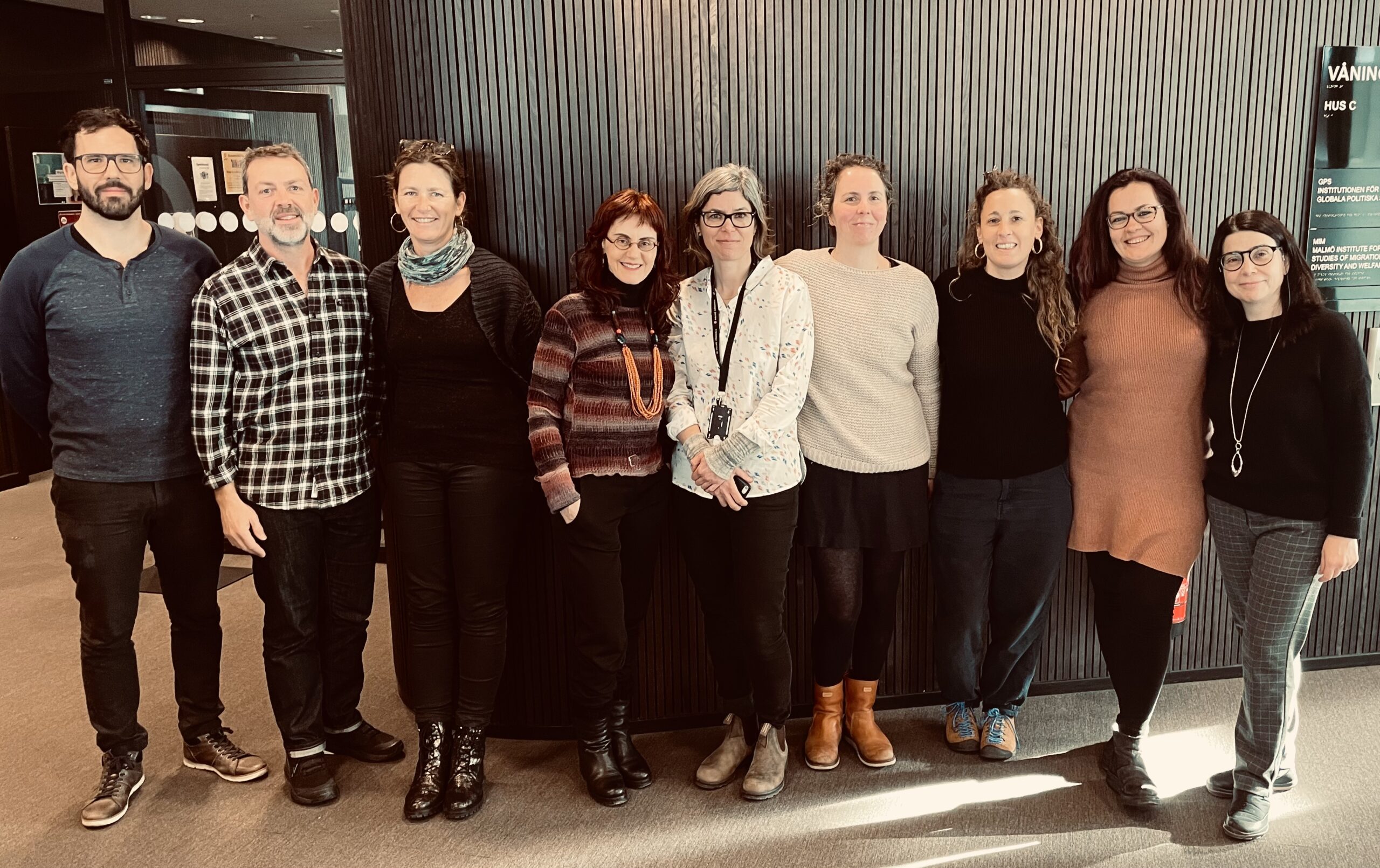At the beginning of February, the project consortium comprising researchers from the UK, France, Spain and Sweden met for a three-day project meeting in Malmö, Sweden. After one and a half years of Zoom meetings, it was high time for the international team to meet again in person. It was lovely to reconnect again offline and chat away during the “fika” breaks (a Swedish coffee break custom that usually includes a hot beverage, a sweet bun and an informal conversation). More importantly, the team brought to the meeting a packed agenda. Among others, updates on the generated fieldwork material had to be shared, a joint framework for analysis was developed and the writing-up of results in the form of reports, policy briefs and academic articles was planned.
On Thursday afternoon, the team presented the participation research design of their project at the public Migration seminar that is organised weekly by Malmö Institute for Studies of Migration, Diversity and Welfare (MIM) at Malmö University. During the seminar, entitled “Participatory research on transnational families and care: Insights and reflections from ongoing research in Sweden, France, Spain and the UK”, the team presented their implementation of participatory research design when studying transnational families and care. Each team presented the specificities of their set-up and reflected on the advantages as well as the hick-ups that have arisen from the particular participatory approach. The Swedish team was joined by one of the community researchers involved in the study, adding to the debate her own reflections on and take-outs from the project. The presentations were followed by a lively discussion with the audience, reflecting the increased interest this type of research design enjoys these days.

